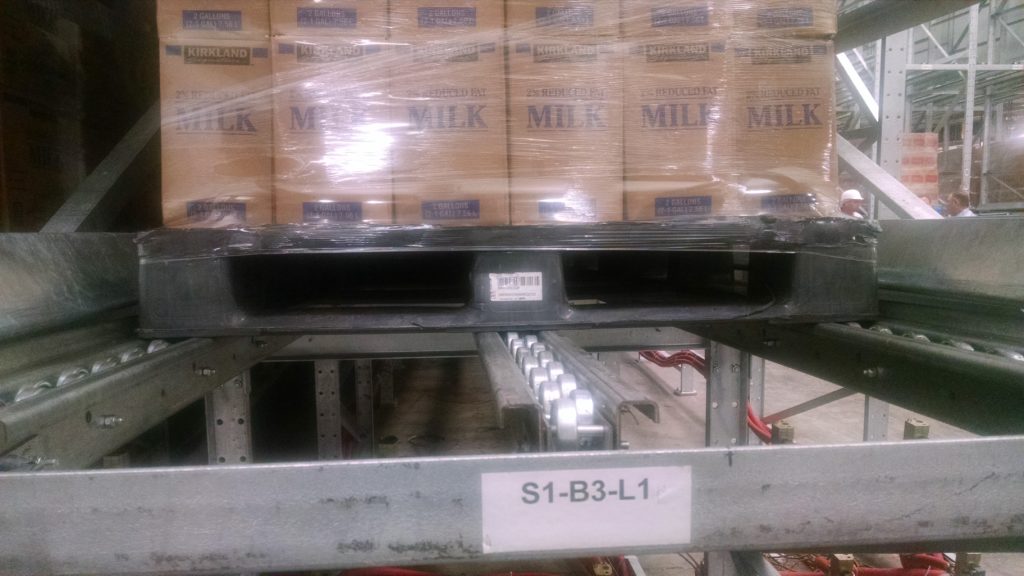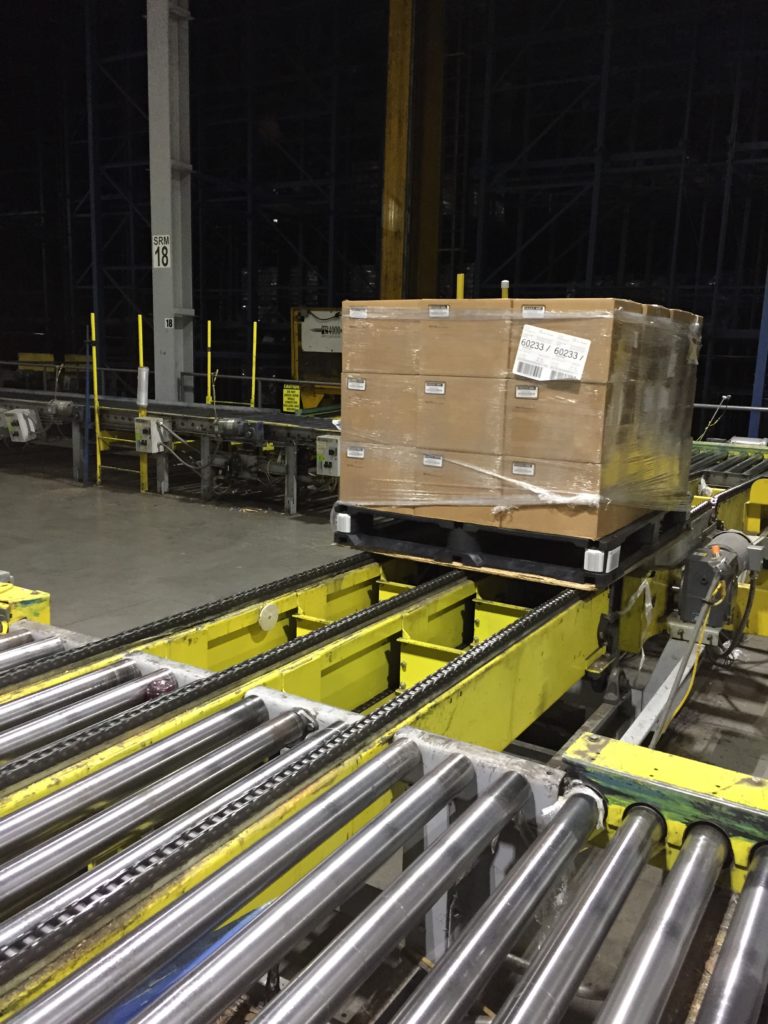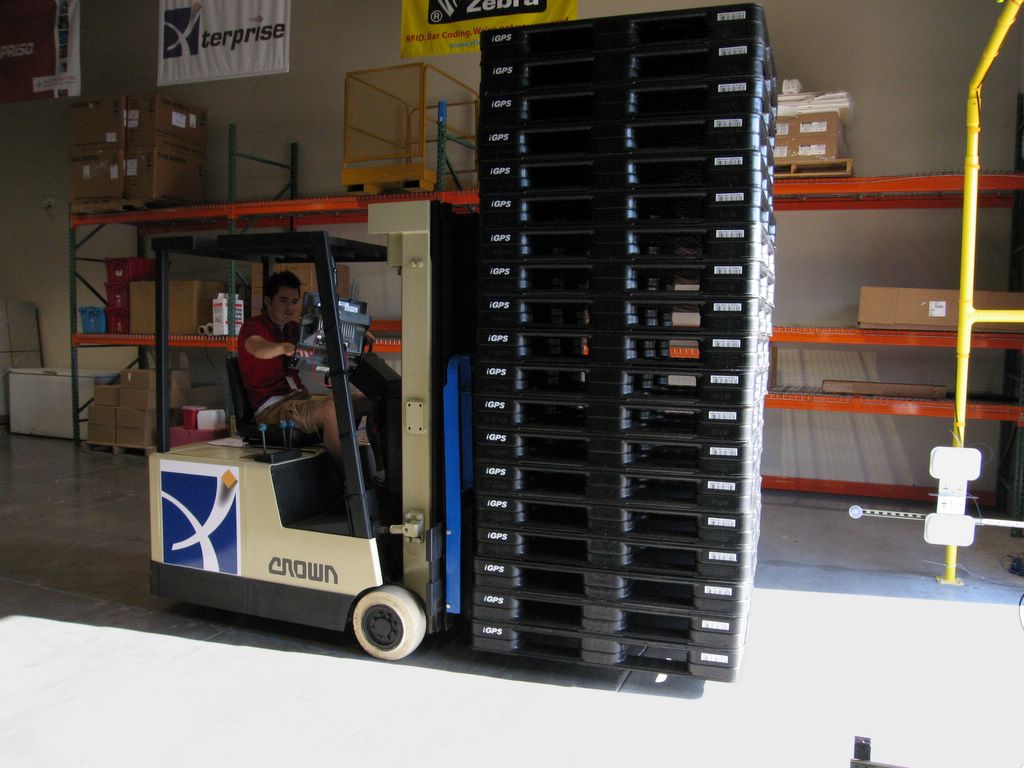Plastic pallets are rapidly becoming the platform of choice for many companies. As supply chain managers see them used more and more frequently in place of traditional wood pallets, they may wonder what plastic pallets are used for, when they should be used, and what logistics problems they solve.
The short answer is that plastic pallets are used for shipping every product that wood pallets ship. However, plastic pallets are particularly competitive over wood pallets when the product being shipped is food, pharmaceuticals, or another item that is particularly vulnerable to contamination, damage, or spoilage. The unique characteristics of plastic pallets also make them an ideal choice for automated systems.
When Should You Use Plastic Pallets?

Plastic pallets derive their advantages from the material out of which they are made. Plastic is light, strong, durable, and nonabsorbent and isn’t subject to degradation due to the action of moisture or microorganisms. High-quality plastic pallets have a sturdy unitized construction that does not use nails or boards, which in wood pallets often pull loose and leave behind debris in production and transport areas. The material and construction of plastic pallets make them an ideal shipping platform for industries where hygiene, safety, and strength are priorities, such as:
- Food: Cleanliness in food production, storage, and transportation is vitally important in order to keep consumers safe and to avoid load rejections by retailers and the associated fees. Using plastic pallets helps food producers and transporters meet and even exceed Food Safety Modernization Act requirements.
- Pharmaceuticals: Pharmaceutical products like drugs, vaccines, and biologicals have even stricter hygiene requirements than those in place for food. Many pharmaceuticals require a stringent cleanroom environment during manufacturing and packaging; non-absorbent, sanitizable plastic pallets are the only shipping platforms that can meet the hygiene requirements for cleanroom pallets and can also withstand the rigors of shipping outside of the cleanroom.
- Paper Products: Products like paper towels and diapers need to arrive at the retailer with their packaging intact so that they are safe and sanitary for use. The resilience and unitized construction of plastic pallets do away with debris, splinters, and sharp edges that can damage the packaging of paper products.
- Heavy Items: Water, beverages, and other liquid products have a great deal of weight for their volume. Industrial products like auto parts can also be quite heavy. High-quality plastic pallets are significantly more robust than their wood equivalents and capable of carrying a dynamic load of 5000 pounds.
Plastic pallets provide a shipping solution that can be easily cleaned to avoid contamination of products and production areas.
Plastic pallets can bring cost-saving benefits to almost any industry, but when hygiene and sanitization in the supply chain are crucial, plastic pallets are the obvious choice. If your company manufactures or distributes food products like produce, meat, poultry, eggs, or dairy products, plastic pallets provide a shipping solution that can be easily cleaned to avoid contamination of products and production areas. The same applies to sensitive products like pharmaceuticals and the many types of paper products that need to be kept dry and sanitary. The durability and stable dimensions of plastic also offer other advantages that can increase operational efficiency in the supply chain.
Plastic Pallets Are the Best Shipping Platform for Automation

Perhaps the single greatest advantage of plastic pallets is their uniformity. Wood pallets, on the other hand, vary in weight and dimensions because wood absorbs moisture, which can change the weight and even the size of a pallet. The strength of a wood pallet can vary too, depending on the type of wood employed, how it was cut and treated, and how it was assembled. The level of variability in wood pallets is especially problematic for automated storage and retrieval systems (ASRS), which require pallet uniformity to operate without interruption.
Plastic pallets ensure that ASRS systems are being used to their full potential.
Plastic pallets, on the other hand, are engineered to provide uniform dimensions, consistent weight, and a much longer lifespan than wood pallets. The durability and predictability of plastic pallets mean that an ASRS that handles only plastic platforms will work reliably with less oversight and fewer interventions to correct errors and clean up stoppages than an automated system using wood pallets. The biggest advantage of warehouse automation is its capacity for high throughput; plastic pallets ensure that ASRS systems are being used to their full potential. Plastic platforms are also a better choice for the deep lane storage and other high-density storage systems frequently used alongside automated systems. Pallets deep within the system aren’t easily accessible, and errors or interruptions require time-consuming interventions.
The advantages of plastic pallets make them a superior shipping platform nearly everywhere in the supply chain. However, their advantages really shine when they are used to transport and store products that are sensitive to their surroundings and require a high level of sanitation. Plastic platforms also excel in environments where maintaining high throughput is a major priority. High-quality plastic pallets should be used anywhere there is a need to improve product safety, reduce product damage, and lower your Total Cost of Business (TCOB).
The iGPS plastic pallet pool rents durable GMA spec plastic pallets, providing access to the advantages of plastic pallets while eliminating the hassle of managing an internal fleet. To enjoy the benefits of a superior shipping platform, give our team a call at 1-800-884-0225, email a specialist at switch@igps.net, or visit our contact page.



